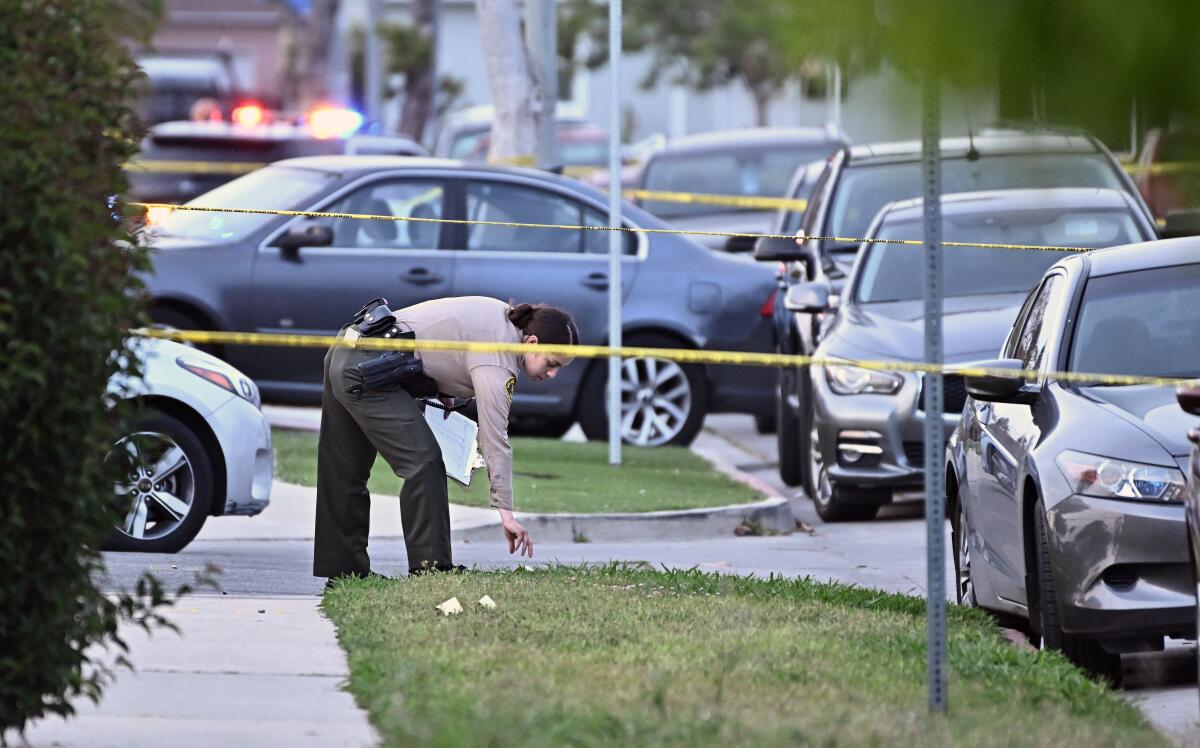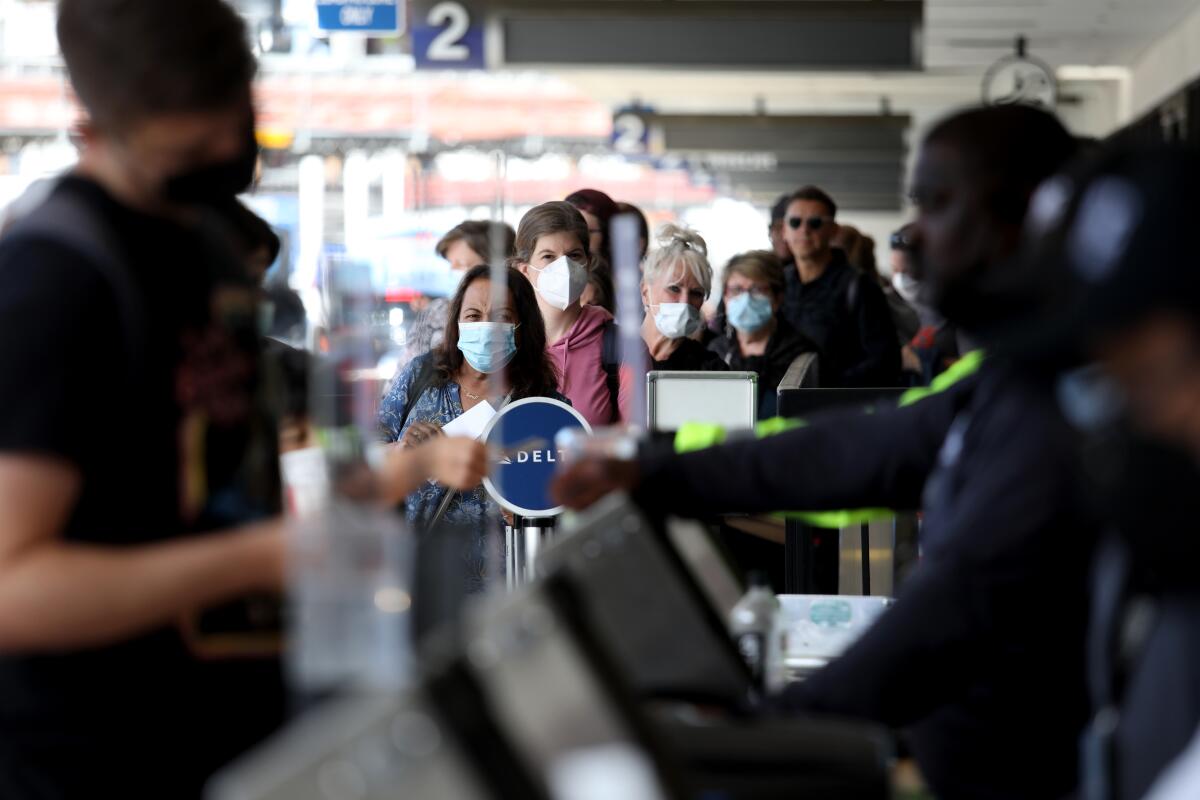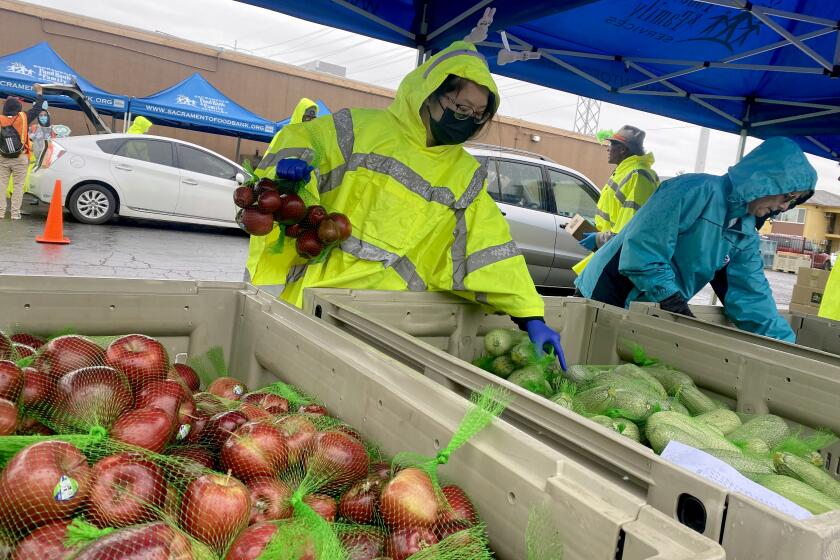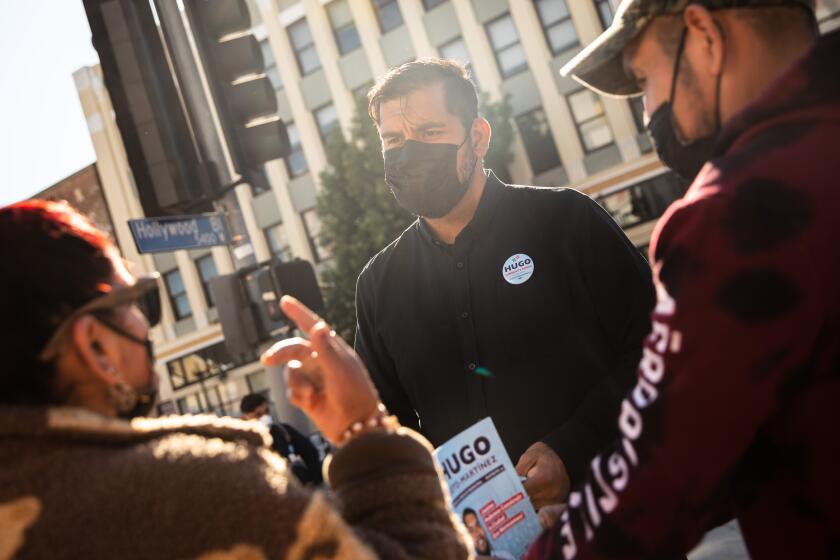Inflation, crime, COVID: L.A. County quality-of-life scores take a hit across the board

- Share via
Rising inflation and housing costs, an increase in crime and the lingering effects of the pandemic have taken a substantial toll on Angelenos’ quality of life over the last year, according to a new survey from UCLA.
The 2022 Quality of Life Index, prepared by UCLA’s Luskin School of Public Affairs, dropped to 53 out of 100, the lowest score since it was started in 2016.
This year’s result is five points lower than the results of the 2021 and 2020 surveys and three points lower than the 2018 and 2019 scores of 56, the previous nadir.
“What the pandemic couldn’t do over the last two years, inflation and increases in violent and property crime succeeded in doing,” said Los Angeles Initiative director Zev Yaroslavsky, who oversees the project. “It appears that the dam has burst this year.”
The survey measures 1,400 Los Angeles County respondents’ satisfaction in categories including cost of living, transportation and traffic, the environment, public safety, education, race relations, healthcare and their neighborhood.
It provides an overall score as well as individual scores for each category, providing a snapshot into the anxieties, preoccupations and satisfactions of L.A. County residents.
Usually, Yaroslavsky said, changes in some categories are offset by shifts in other areas, providing for a consistent baseline; since 2016, the overall score has never risen or fallen by more than three points year-over-year and has never fallen below 55.
Food banks are seeing increased demand as spiking prices at grocery stores and gas pumps due to inflation cut into budgets.
That timespan included contentious political climates, destructive wildfires, intense drought and the darkest days of the COVID-19 pandemic.
For instance, parents with children last year gave education a score of 52, down from 2020’s score of 58. But that sharp decline did nothing to change the overall satisfaction score from 2020.
But this year, every category in the index saw a decrease in satisfaction, with eight of the nine categories reaching all-time lows.
One of the most dramatic decreases was seen in cost of living, which swung from 45 to 39 amid a pileup of sky-high gas and housing prices and inflation.

And many Angelenos said they were not only paying more for food and other essentials but also getting paid less.
More than 30% of respondents said their income had decreased during the pandemic. Around 22% said their income rose.
“More people are still seeing their income going down than going up,” Yaroslavsky said. “My income is going down, my cost of living is going up, and I don’t have as much money to spend on discretionary things as I did two years ago.”
Additionally, a third of people who said they had lost income also said that they had fallen behind on their rent or mortgages.
Those figures mirror a Public Policy Institute of California survey last month that found that 26% of Californians were very concerned with being able to afford housing.
“The age demographic that’s mostly most impacted seems to be the 30-to-39-year-olds who are starting families, trying to get into the housing market,” Yaroslavsky said. “They seem to be even more dissatisfied than any other age group.”
The challengers will test the public’s appetite for reining in spending at the LAPD, two years after the city erupted in protest over police abuse.
Satisfaction with public safety also saw a 5-point dip among respondents, falling to 56, driven by concerns over property and violent crimes.
“We’re not asking them for whether there is an increase in crime, we’re asking them whether they feel there’s been an increase in crime over the last year in their neighborhood,” Yaroslavsky said.
The Los Angeles Police Department reported increases of less than 5% for property and violent crimes between 2020 and 2021, although homicides spiked to nearly 400, the most in more than 10 years.

But overall crime, including violent and property crimes, continues to be down substantially from the levels seen in the 1990s.
The survey also showed that the pandemic continued to weigh heavily on respondents’ minds as nearly 70% said that COVID-19 has fundamentally changed their lives.
“COVID has taken its toll on our society in profound ways,” Yaroslavsky said in a release. “This finding — that life has been permanently altered — may be the most profound.”
More to Read
Sign up for Essential California
The most important California stories and recommendations in your inbox every morning.
You may occasionally receive promotional content from the Los Angeles Times.
















